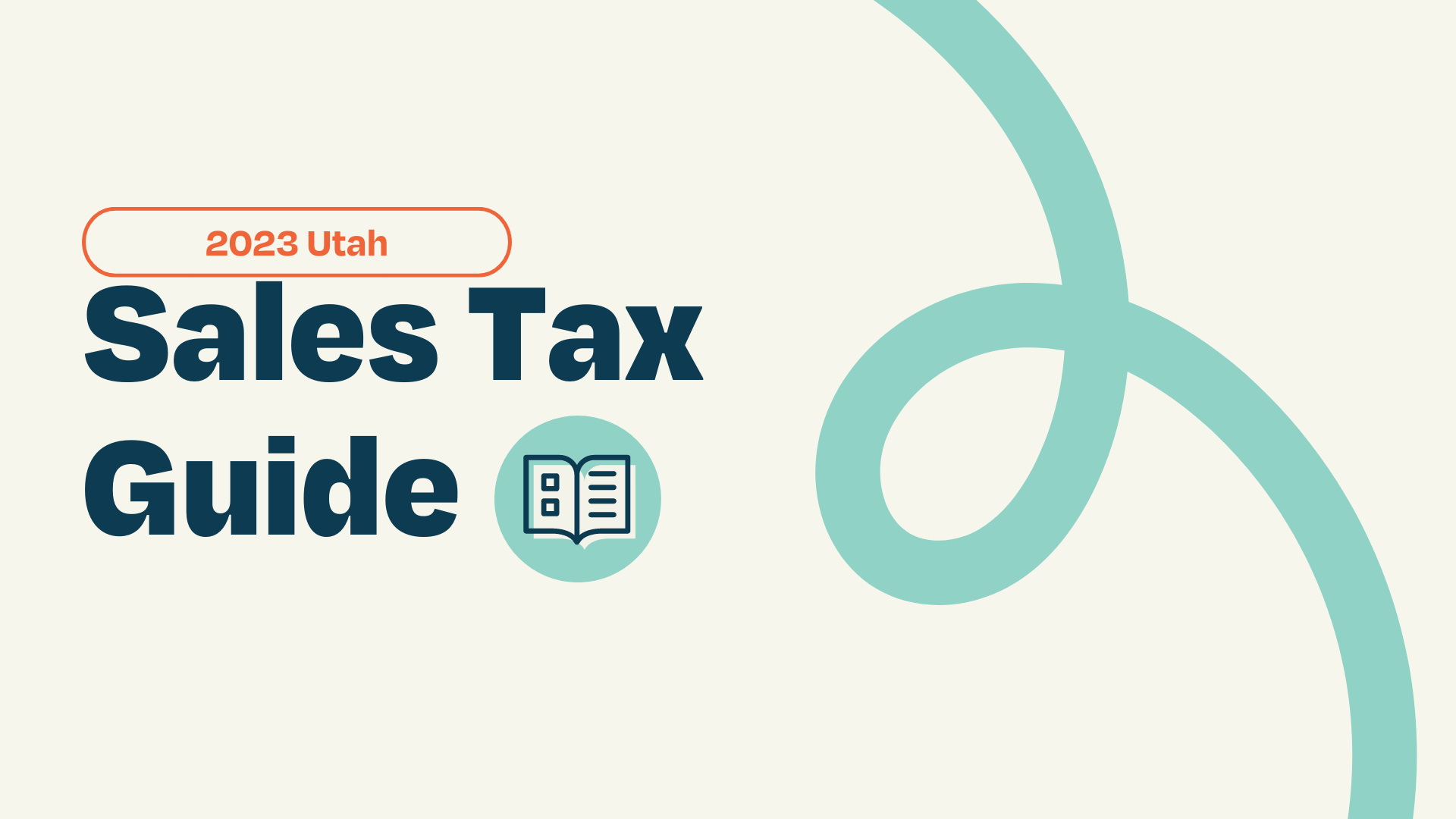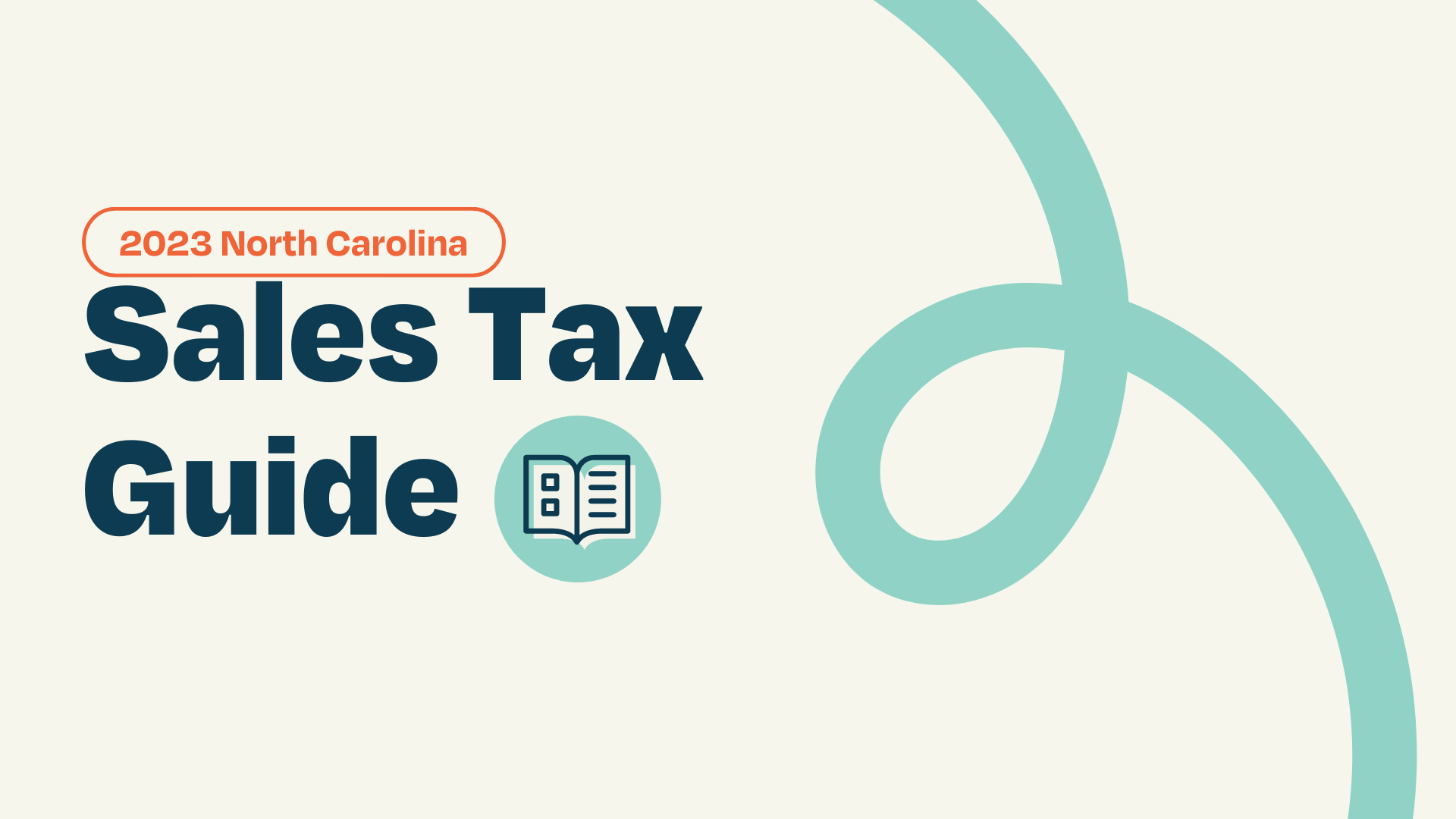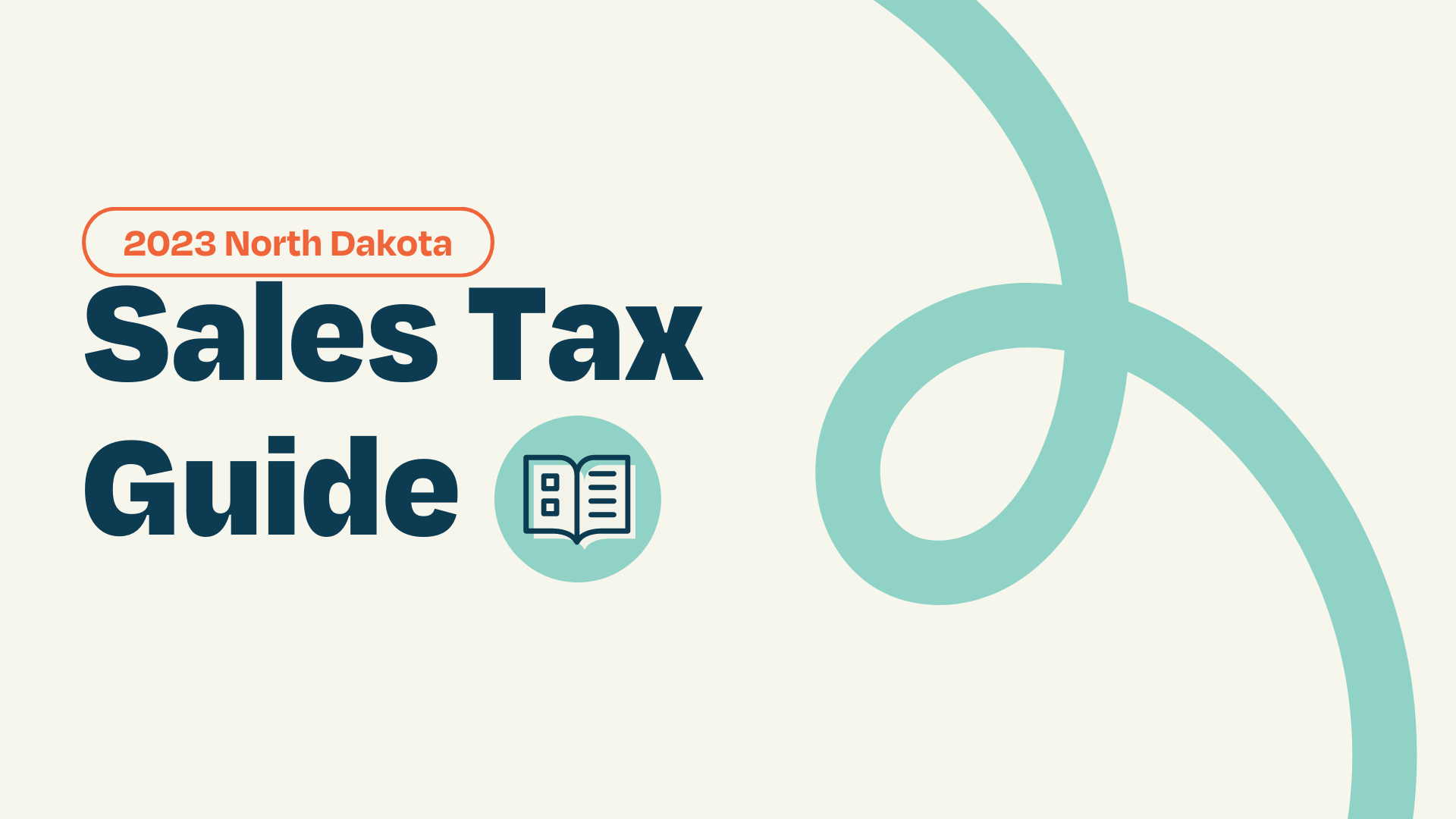1 min read
North Carolina 2023 Sales Tax Guide
North Carolina Sales Tax in a Word As a small business owner, navigating the world of sales tax can feel like a rollercoaster ride. One moment...

Welcome, partners, to our delightful journey through the scenic landscapes of Utah sales tax! As you embark on this adventure with us, we'll guide you through the ins and outs of managing your sales tax responsibilities in the Beehive State.
Together, we'll explore Utah sales tax contacts, determine if you have nexus, learn about registration, and uncover the secrets to collecting, filing, and paying sales taxes in Utah. And to top it all off, we'll share five invaluable tips to help you avoid common mistakes when filing your Utah sales tax returns. So, saddle up, folks, and let's hit the trail to sales tax success in Utah!
|
Table of Contents |
Navigating the world of Utah sales tax can feel like traversing the state's majestic red rock formations. But fear not, for you're not alone in this journey. The Utah State Tax Commission is your trusty guide, and they're ready to help you through the process.
The Utah State Tax Commission is the state agency responsible for managing sales tax in Utah. They handle everything from registering businesses to collect taxes, to processing tax returns and issuing refunds.
If you have any questions or need assistance, there are several ways to get in touch with the Utah State Tax Commission:
|
Mailing Address |
Utah State Tax Commission 210 North 1950 West Salt Lake City, UT 84134 |
|
Phone Numbers |
General Information: 1-801-297-2200 Toll-Free: 1-800-662-4335 |
|
Website |
Utah State Tax Commission |
While the Utah State Tax Commission is there to help, it's also a wise idea to seek advice from a tax professional or your friendly neighborhood team here at Accountingprose. We're always ready to lend a hand and help you navigate the sometimes winding trails of Utah sales tax.
Before you can conquer the peaks of Utah sales tax, you first need to determine if you have nexus in the state. Nexus is a connection or presence that subjects your business to the state's sales tax laws. Let's break down the different types of nexus and how they apply in Utah.
There are several ways your business can establish nexus in Utah, including physical, economic, affiliate, click-through, and marketplace nexus. Understanding these types of nexus will help you determine if your business must collect and remit sales tax in the Beehive State.
Physical nexus is established when your business has a tangible presence in Utah. This can include having:
A brick-and-mortar store
An office or warehouse
Employees, sales representatives, or agents in the state
Inventory stored in a Utah warehouse, even if it's operated by a third party
Economic nexus is based on your sales revenue and transaction volume within Utah. In the Beehive State, you'll establish economic nexus if you:
Have more than $100,000 in gross sales revenue from Utah customers during the current or previous calendar year, or
Conduct 200 or more separate sales transactions with Utah customers during the current or previous calendar year
Affiliate nexus occurs when your business has a relationship with another company or individual in Utah that helps promote or sell your products. This could include:
Parent or subsidiary companies
Entities with shared ownership
Commission-based referrals from in-state affiliates
Click-through nexus is established when an in-state business or individual refers customers to your business via a website link, and you compensate them for the referrals. In Utah, click-through nexus applies if:
Your business has an agreement with a Utah-based affiliate who refers customers to you through a website, and
Your gross sales from these referrals exceed $10,000 during the previous 12 months
Marketplace nexus occurs when your business sells through an online marketplace, like Amazon or eBay, and that marketplace has a presence in Utah. In this case, the marketplace facilitator is responsible for collecting and remitting sales tax on your behalf.
Yes, Utah enforces use tax laws. Use tax applies to purchases made from out-of-state retailers for items that are used, stored, or consumed in Utah and on which sales tax was not collected. As a business owner, it's essential to understand and comply with Utah's use tax laws to avoid any surprises during a tax audit.
|
Looking for a refresher on use tax? Check out our sales tax vs use tax blog here 👀 |
Knowing whether you have nexus in Utah is a vital first step in managing your sales tax responsibilities. Armed with this knowledge, you're well on your way to taming the wild terrain of Utah sales tax.
After determining your nexus in Utah, it's time to take the next step in your sales tax expedition: registration. Registering for a sales tax license is key to staying compliant and thriving in the Beehive State. Let's dive into the details of the registration process.
To register for a sales tax license in Utah, follow these steps:
Gather your information: Before you begin, ensure you have the necessary details on hand, such as your business name, address, Social Security Number or Federal Employer Identification Number (FEIN/EIN), and estimated monthly sales tax revenue.
Visit the Utah State Tax Commission's website: Go to the Utah State Tax Commission's website.
Create an account (if necessary): If you don't already have an account, you'll need to create one. Click on the "Sign Up" button and provide the required information.
Apply for a sales tax license: Once you're logged in, click on "Apply for a New License" under the "I Want To" section. You'll be guided through a series of questions to complete the application.
Review and submit your application: Double-check your application for accuracy, and then submit it. You'll receive a confirmation number, which you should save for your records.
Wait for approval: The approval process can take up to 14 days. Once your application is approved, you'll receive your Utah sales tax license and account number.
Display your license: Upon receiving your license, be sure to prominently display it at your place of business, as required by Utah law.
Great news! There's no fee to register for a Utah sales tax license. So, you can focus your resources on other aspects of building your thriving business.
Yes, you'll need a Federal Employer Identification Number (FEIN/EIN) when registering for a Utah sales tax license. If you don't already have one, you can obtain an EIN by applying online at the IRS website.
In addition to registering for a sales tax license, you may need to register with other Utah agencies, depending on your business type and activities. Some examples include:
Utah Department of Commerce for business entity registration
Utah Department of Workforce Services for unemployment insurance
Utah Labor Commission for workers' compensation
Remember to research and comply with any additional registration requirements specific to your business to ensure a smooth journey through the Utah sales tax landscape.
Now that you're registered and equipped with a Utah sales tax license, it's time to learn the art of collecting sales tax from your customers. We're here to help you understand the nuances of sales tax collection in Utah, so let's get started!
Utah is a destination-based sales tax state. This means that you should collect sales tax based on the delivery location of the goods or services, rather than the location of your business. Destination-based sales tax collection ensures that the tax revenue goes to the appropriate jurisdiction where the goods or services are consumed.
In Utah, sales tax generally applies to the sale or lease of tangible personal property, certain services, and some digital goods.
Examples include:
Furniture
Electronics
Clothing
Motor vehicles
Admissions to events or attractions
Hotel and lodging accommodations
Sales tax also applies to taxable services, such as:
Repair and maintenance services
Telecommunications services
Cleaning services
Personal services, like skincare and hair care
Yes, Software as a Service (SaaS) is subject to sales tax in Utah. This includes prewritten software delivered remotely or electronically, as well as software accessed through a web-based subscription service.
Utah provides several exemptions from sales tax, including:
Sales of certain groceries and unprepared food items
Prescription drugs and medical devices
Sales to qualified charities and nonprofit organizations
Sales to the federal or state government and their agencies
Agricultural products and machinery used in farming
To qualify for a Utah sales tax exemption, a purchaser must meet specific criteria, such as:
Being a registered nonprofit or charitable organization
Holding a valid sales tax exemption certificate issued by the Utah State Tax Commission
Purchasing items for use in a tax-exempt activity, like religious or educational purposes
If your customer is eligible for a sales tax exemption, you should:
Obtain a completed and signed Utah Sales Tax Exemption Certificate (Form TC-721) from the customer.
Verify the accuracy of the certificate, including the purchaser's name, address, and exemption reason.
Keep the completed exemption certificate on file for a minimum of three years, as required by Utah law.
If you lose a Utah Sales Tax Exemption Certificate, contact the purchaser and request a new, completed, and signed certificate. It's essential to maintain accurate records of all exemption certificates to protect your business in case of a sales tax audit.
With this newfound knowledge about collecting sales tax in Utah, you're well on your way to mastering the art of sales tax compliance and growing your business in the Beehive State.
You've successfully registered, collected sales tax, and maintained accurate records - congratulations! Now it's time to wrap up the sales tax process by filing and paying your Utah sales taxes. Let's walk through the filing process and ensure a smooth and timely submission.
Utah sales tax returns are due based on the filing frequency assigned to your business by the Utah State Tax Commission.
The filing frequency and dues dates are as follows:
|
Monthly Filing with Mandatory Prepayment |
If you collect more than $96,001 in sales tax per year, you will file and pay monthly. |
Due on the last day of the month following the reporting period. |
|
Monthly Filing |
If you collect between $50,001 and $96,000 in sales tax per year, you will file and pay monthly. |
Due on the last day of the month following the reporting period. |
|
Quarterly Filing |
If you collect between $1,001 and $50,000 in sales tax per year, you will file and pay quarterly. |
Due on the last day of the month following the end of the quarter. |
|
Annual Filing |
If you collect less than $1000 in sales tax per year, you will file and pay annually. |
Due on January 31 of the following year. |
If a Utah sales tax filing date falls on a weekend or holiday, the deadline is automatically extended to the next business day.
To file a Utah sales tax return, follow these steps:
Gather your records: Before you begin, make sure you have all the necessary information, such as your sales tax license number, total sales, and total sales tax collected during the reporting period.
Log in to the Utah Taxpayer Access Point (TAP): Visit the Utah State Tax Commission website. Log in to your account using your username and password.
Select the appropriate tax return: Once logged in, click on the "File a Return" link under the "I Want To" section. Choose the correct sales tax return for the reporting period you're filing.
Complete the return: Fill out the sales tax return by entering your total sales, taxable sales, and sales tax collected during the reporting period. Be sure to include any applicable deductions, like sales tax exemptions or tax paid on purchases for resale.
Review and submit your return: Double-check your return for accuracy, then submit it. You'll receive a confirmation number, which you should save for your records.
Make your payment: If you owe sales tax, you can pay electronically through the TAP system using an electronic check (ACH debit) or credit/debit card. Alternatively, you can mail a check or money order with a completed Form TC-547 to the Utah State Tax Commission. Keep in mind that payments must be submitted by the due date to avoid penalties and interest.
By following these steps, you'll be well on your way to successfully filing and paying your Utah sales tax return, keeping your business compliant and thriving in the Beehive State.
Penalties for failing to file or pay sales tax on time in Utah can be substantial and include:
Late filing penalty: 10% of the unpaid tax or $20, whichever is greater
Late payment penalty: 1% of the unpaid tax for each month the tax remains unpaid
Interest: 1.5% of the unpaid tax for each month the tax remains unpaid
To avoid these penalties, be sure to file and pay your Utah sales tax on time.
Yes, Utah offers various sales tax incentives to promote economic development and job growth. These incentives can include sales tax exemptions, credits, or refunds for businesses in specific industries, such as clean energy, manufacturing, and research and development.
Filing sales tax returns can be a daunting task, but with a little preparation and attention to detail, you can avoid common pitfalls. Here are five tips to help you sidestep mistakes and ensure a smooth filing process for your Utah sales tax returns:
Stay organized: Maintain accurate and up-to-date records of your sales, exemptions, and taxable transactions. Implement a reliable bookkeeping system to track your sales tax collection, and regularly reconcile your accounts to avoid discrepancies. This will make filing your return a breeze and help you identify any errors or missing information before submitting your return.
Understand your filing frequency: The Utah State Tax Commission assigns a filing frequency (monthly, quarterly, or annually) based on your estimated tax liability. Make sure you're aware of your assigned frequency and the corresponding due dates to avoid late filing and payment penalties. Set reminders or use a calendar to keep track of these crucial deadlines.
File even if you have no sales tax to report: If you don't have any taxable sales during a reporting period, you're still required to file a "zero return." Failing to file a return, even when no tax is due, can result in penalties. Be diligent about filing your returns on time, regardless of your sales activity.
Double-check your calculations: Errors in calculations can lead to underpaying or overpaying your sales tax liability. Take the time to double-check your figures before submitting your return. Verify the accuracy of your total sales, taxable sales, and sales tax collected, as well as any deductions or exemptions you're claiming. Consider using sales tax software or consulting with a tax professional to ensure your calculations are correct.
Keep up-to-date with tax rate changes: Tax rates can change due to legislative updates or local jurisdiction adjustments. It's crucial to stay informed about any changes in tax rates and apply them correctly when filing your sales tax returns. Regularly check the Utah State Tax Commission website for updates, and make any necessary adjustments to your sales tax collection process.
By following these tips, you'll be well-prepared to file your Utah sales tax returns accurately and on time. This proactive approach will help you maintain a healthy relationship with the Utah State Tax Commission, minimize the risk of penalties, and ensure your business remains compliant and successful in the Beehive State.
Navigating the intricacies of Utah sales tax collection, filing, and payment may seem overwhelming at first, but with the right approach and resources, it's a manageable process that will become second nature to you. By staying organized, understanding your filing frequency, filing timely returns, and keeping up-to-date with tax rate changes, you'll set your business up for success in the Beehive State.
Remember, we at Accountingprose are here to help and support you every step of the way. Our team of experts is committed to ensuring your small business thrives, and we're ready to guide you through the sales tax process. Together, we'll conquer the world of sales tax and continue to achieve growth and success for your business. So, let's raise a toast to a bright future filled with accurate sales tax returns and a thriving Utah business community!
|
Alaska Sales Tax Guide (N/A) |
||||
|
Montana Sales Tax Guide (NA) |
||||
|
Oregon Sales Tax Guide (N/A) |
||||
|
Delaware Sales Tax Guide (N/A) |
||||
|
New Hampshire Sales Tax Guide (NA) |
||||
And don't forget to check out our blog about Economic Nexus, which serves as an invaluable resource for businesses who have sales that are subject to sales tax.
This blog is for informational purposes only and the information is accurate as of 2023-06-19. If you want legal advice on sales tax law for your business, please contact a State and Local Tax (SALT) professional. Keep in mind that sales tax regulations and laws are subject to change at any time. While we strive to keep our blog current, this blog possibly may be out of date by the time you review it.

1 min read
North Carolina Sales Tax in a Word As a small business owner, navigating the world of sales tax can feel like a rollercoaster ride. One moment...

North Dakota Sales Tax in a Word Embarking on the journey of running a small business in North Dakota is an exciting adventure filled with...

1 min read
As businesses continue to expand their online presence, understanding the implications of economic nexus has become increasingly important. Economic...